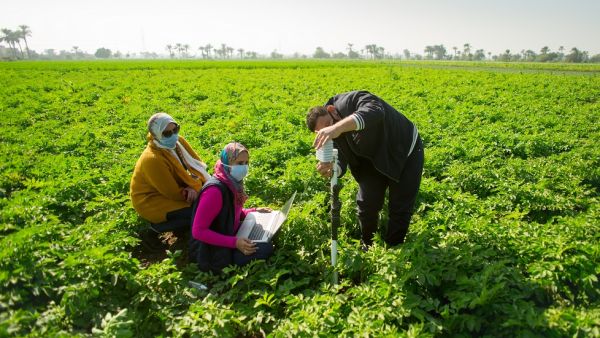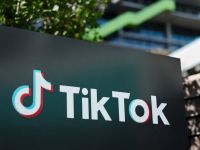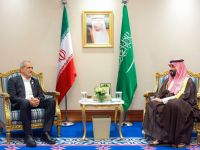PepsiCo Africa, Middle East and South Asia’s ‘Filing Hearts Outside the Box’ program pledges over 3 million meals this Ramadan

PepsiCo in Africa, Middle East and South Asia (AMESA) partnered with the PepsiCo Foundation - the philanthropic arm of PepsiCo, to launch the ‘Filling Hearts Outside the Box’ program, pledging over 3 million meals to people in need across Egypt, Iraq, Lebanon, Pakistan, Saudi Arabia and the UAE throughout the Holy Month of Ramadan. As part of the PepsiCo Foundation’s ‘Food for Good’ platform, aimed at advancing food security and making nutritious meals accessible, PepsiCo AMESA identified vulnerable segments across the region and collaborated with local partners, to provide food assistance and targeted meal delivery.
Hunger and food insecurity, exacerbated by climate change and macro-economic conditions, impacts the most vulnerable segments posing multi-scale challenges to health, learning, social equity and sustainable economic development. As part of PepsiCo’s pep+ (PepsiCo Positive) goal to advance food security for 50 million people by 2030 globally, PepsiCo in AMESA is advancing food security initiatives by collaborating with industry peers, local and international organizations, along with inviting PepsiCo employees, to take action on global hunger and ensure the most vulnerable can access food with dignity.
“PepsiCo recognizes that food is a basic human right and has been striving to make food readily accessible across the AMESA region for more than a decade, said Eugene Willemsen, CEO, PepsiCo AMESA. As a leading food producer and an agriculture company at our core, PepsiCo in the AMESA region has been playing a key role in leveraging capabilities to inspire local impact on food security. Through the ‘Filling Hearts Outside the Box’ initiative, we feel humbled to make Ramadan even more special by offering meals and lending a helping hand to those less fortunate.”
“Access to nutritious food is essential for people and communities to thrive,” said C.D. Glin, President of the PepsiCo Foundation. “We invest in interventions to improve the resiliency of the global food system. But we cannot do this work alone. We are grateful for our local partners who are helping us to deliver millions of meals this Ramadan season.”
Iraq
In an attempt to break the cycle of poverty, PepsiCo built on its ongoing partnership with Iraqi Children’s Foundation (ICF) and its Hope Bus initiative to supply 22,500 meals to underprivileged youngsters. Hope Buses are second-hand, stationed buses converted into colorful, child-friendly classrooms. Staffed by two teachers and a social worker, each bus serves approximately 50 orphans and street kids in low-income neighborhoods every day, providing them with food and water, basic education, school supplies, psychological support, clothes, as well as healthcare and hygiene supplies. PepsiCo will continue to support two of the three buses for one year.
Lebanon
Lebanon has experienced unprecedented challenges over the past two years including the devastating economic downturn and steep inflation, which has led to more than 75% of the Lebanese population living in poverty, according to the UN. During Ramadan, PepsiCo collaborated with the Lebanese Food Bank (LFB) to distribute 90,000 hot meals and food boxes stocked by local producers, to not only provide nutritious meals to vulnerable families, but also to help generate additional income for local producers.
Egypt
In Egypt, the company donated 1.5 million meals through Al-Manfaz and the Egyptian Food Bank. PepsiCo employees gathered at the Al-Manfaz warehouse to pack the boxes, bringing support closer to the Egyptian communities.
Pakistan
In Pakistan, PepsiCo engaged directly with the community by hosting iftars for orphans featuring child-friendly activities organized by the company’s employees. As part of the program, PepsiCo in partnership with Akhuwat Foundation distributed over 1.2 million meals.
Saudi Arabia
In Saudi Arabia, PepsiCo contributed 150,000 meals as part of the food basket program run by the Saudi Food Bank (Eta’am) and distributed 200,000 Aquafina bottles to the Iftar Sayim project.
UAE
In the UAE, PepsiCo organized with Companies for Good to donate 400 meals at a labor camp to the blue-collar community. In addition to the meals, 400 beverages and 400 Aquafina bottles were distributed.
Since its launch in 2009, PepsiCo’s Food for Good delivered more than 270 million meals to over 46 million people in partnership with more than 60 non-profits in 28 countries. For more information, please visit the Food for Good by PepsiCo website.
Background Information
Pepsi Cola International
In 1965, Donald Kendall, the CEO of Pepsi-Cola, and Herman Lay, the CEO of Frito-Lay, recognized what they called “a marriage made in heaven,” a single company delivering perfectly-salty snacks served alongside the best cola on earth. Their vision led to what quickly became one of the world's leading food and beverage companies: PepsiCo.
For more than 50 years, as tastes, trends and lifestyles have changed, PepsiCo has evolved with them. Our willingness to adapt and grow has transformed our snack and soda company into a collection of global brands including Pepsi and Quaker, Gatorade and Tropicana, Frito-Lay and beyond. Today, PepsiCo is one of the world’s most-respected companies with products sold in more than 200 countries and territories and 22 brands that generate more than $1 billion each in estimated annual retail sales.






